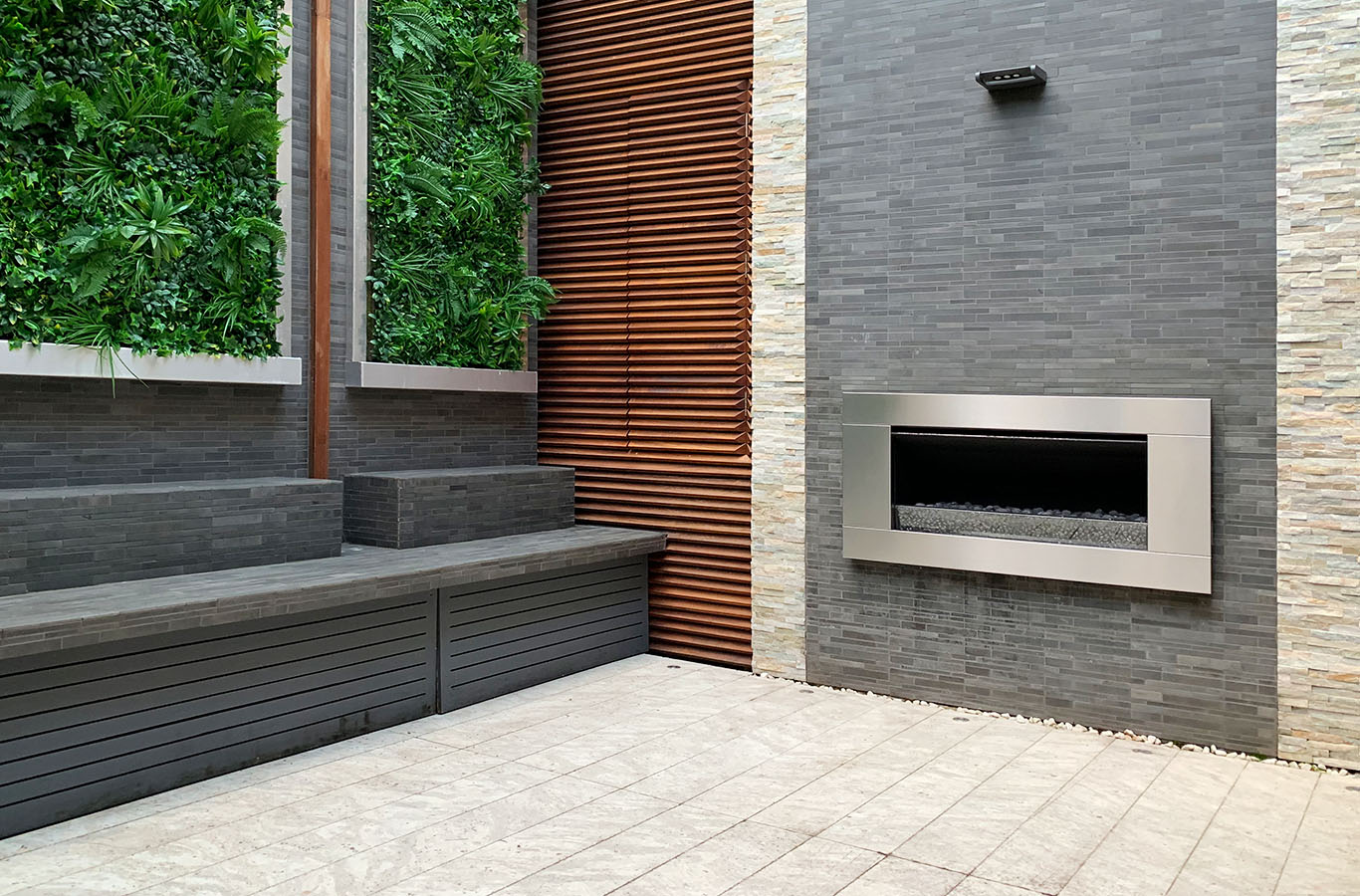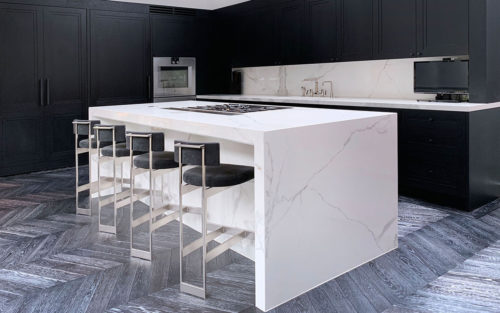At Marble & Granite our speciality is in stone worktops in London, and we produce and install them in our customers’ choice of stone. Some of these are natural stone, such as marble and granite, along with quartzite and limestone. We also produce worktops crafted from what are known as engineered, or man-made stones such as quartz and sintered stone.
When you are refurbishing your kitchen, this gives you a great choice of different products and finishes, together with some wonderful patterns of nature in the natural stones with all their glorious veining, patterning, and multitude of different variations in colour. When you come over to our works in Hatfield and browse through the incredible selection of slabs that we have available you will see why the words “spoilt for choice” are so appropriate.
Marble is an amazing natural stone and a lot of it is pure white. It was created from limestone dragged down into the earth’s crust under the sea where it was transformed under massive heat and compression. Limestone itself consists of ground down shells of all sorts, which are in essence calcite.
However, while there is a lot of white marble, there is also marble with various patterns and colours in it which is the result of clays, sand, and other minerals becoming involved in the mix.
Marble is a relatively soft stone and gives off a luxurious sheen which, somehow, no other stone is able to achieve. It is porous, so when used as a worktop it needs to be sealed. It is the favourite of many chefs because it remains cold to the touch and is perfect for rolling out pastry.
Granite is another natural stone and is also much harder than marble. It is extremely heat resistant, and it is possible to place hot pans on it without any damage. However, experts do recommend the use of a trivet if using things such as crockpots which emit heat for a long time. It is also possible to chop and cut on it without scratching, but this is likely to dull knife blades and may leave a metal residue which is difficult to remove, so it is advisable to use a chopping board. It is also porous, so will need to be sealed from time to time, but that is a simple process, and the sealant can simply be applied, and the excess wiped off.
Another choice for many people is quartz. Quartz is a natural rock, but when used for things such as worktops it goes through a process of being ground to a fine powder and mixed with polymers and resins. Pigments are also added to produce whatever colour is desired. The final stone is about 93% quartz with the other 7% being made up of the additives.
It is another extremely hard stone and is non-porous, so will never need to be sealed. However, quartz worktops are not heat resistant because of the polymers and resins that they contain, so placing a hot pan on quartz worktops will damage them. However, since it is non-porous it cannot absorb stains and neither can it allow any bacteria to develop, so from the point of view of food preparation, it is perfect.
Another man-made, or engineered, stone is sintered stone. In a similar fashion to quartz, it is produced under heat and pressure using a mix of natural minerals, and produces a finished stone which is non-porous, light weight, stain resistant, scratch resistant, durable, fire resistant, and low maintenance. It can also be recycled.
Sintered stone is actually used across a wide range of industries for many different purposes, including architectural applications. Since it is non-porous it is perfect for the preparation of foods as it cannot contain any harmful bacteria and will not stain. It obviously does not need to be sealed.
At Marble & Granite we also produce worktops using other natural stones such as quartzite and limestone which may be your choice. If you are considering stone worktops, we would suggest paying us a visit in Hatfield and we will be able to show you all of the different varieties of stone that we can supply and obviously answer all your questions.


